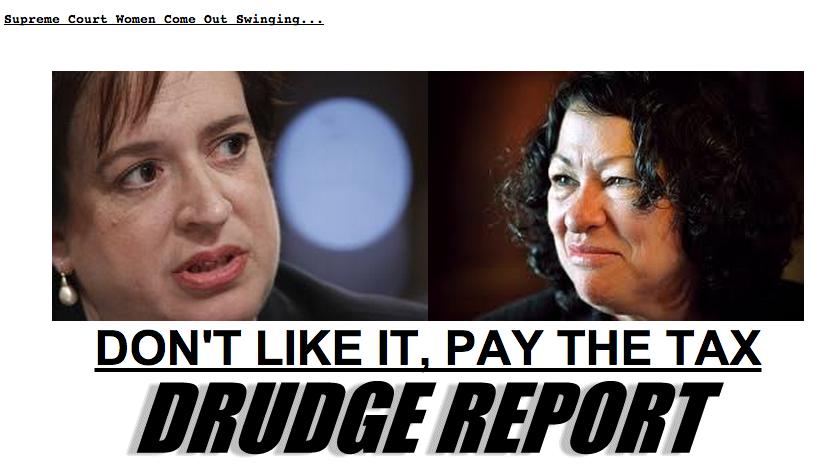Throughout the entire duration that the Affordable Care Act was being foisted on Congress, it’s key provisions were always dubbed mandates–there was the individual mandate, the employer mandate, and later the contraceptive mandate. Yet, you wouldn’t know it if you listened to how the Supreme Court views the law. With the individual mandate, the Chief Justice found that that there is no mandate! Now, with the employer mandate, we see a similar argument. There is no mandate. Just a choice!
As articulated by Justice Kagan:
JUSTICE KAGAN: But Mr. Clement, it’s not saying you must do something that violates your religion. It’s giving you a choice. You can do this thing or if this thing violates your religion you can do another thing. And that other thing is approximately the same price as the thing that you don’t want to do.
Kennedy echoed the essence of the Chief’s saving construction–if the cost of providing insurance is equivalent to the cost of the penalty, there is really no mandate.
JUSTICE KENNEDY: But why why is that a problem? Let’s assume that the cost of providing insurance is roughly equivalent to the $2,000 penalty. How how is the employer hurt? He can just raise the wages. …
JUSTICE KENNEDY: Okay, the last is important. But just assume hypothetically that it’s a wash, that the employer would be in about the same position if he paid the penalty and the employer pardon me, an employee went out and got the insurance and that the employee’s wages were raised slightly and then it’s and that it’s a wash so far as the employer are concerned, other than the employer’s religious objection, but just on the financial standpoint. Can we assume that as a hypothetical. Then what would your case be?
There is no mandate. There is merely a monetary penalty for not doing something. And why not, let’s call it a tax! This is the future of governmental mandates. Just charge someone for not doing something the government wants.
And even Drudge picked up on it!
